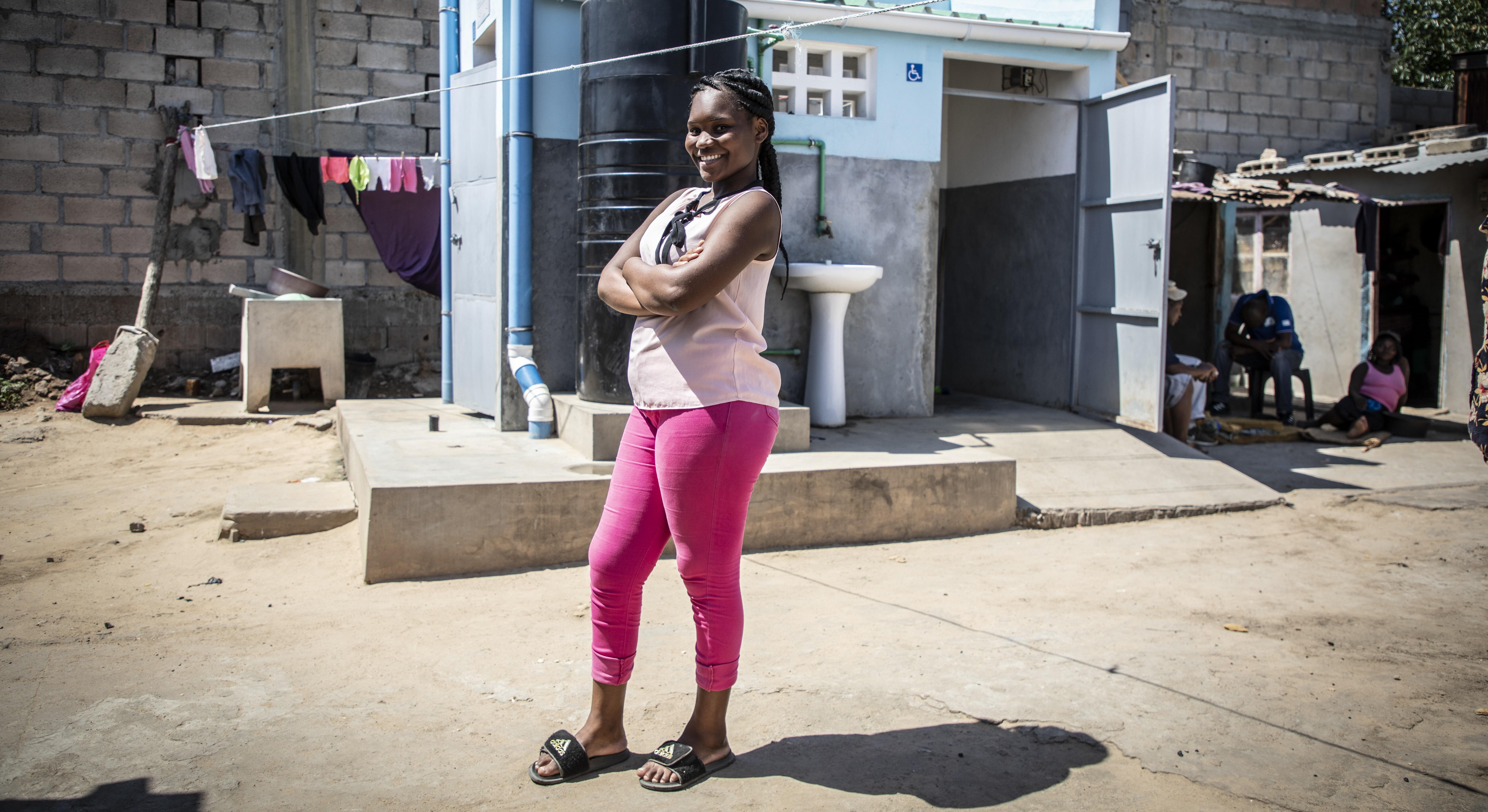Inadequate access to sanitation, hygiene and menstrual health perpetuates a vicious circle of disease, poverty and inequality, and poses a significant climate risk.
Nearly half of the world’s population lacks access to safely managed sanitation
In 2010, the United Nations General Assembly recognised the human right to water and sanitation. Yet, in 2022, nearly half of the world’s population still lacks access to a safely managed sanitation service and 1 in 3 people globally do not have basic hand washing facilities with soap and water at home.
Inadequate access to sanitation and hygiene perpetuates a vicious circle of disease, poverty and inequality. Poor hygiene and sanitation are closely connected to major global health risks such as polio, cholera and typhoid, and jeopardize social and economic development. They also increase inequalities: two thirds of people who lack basic services live in rural areas and nearly half of them live in sub-Saharan Africa.
Women and girls are disproportionately affected: half a billion people across the world share sanitation facilities with other households, compromising women’s and girls’ privacy, dignity, and safety. Inadequate access to sanitation and hygiene also increases health risks for women and girls and limits their ability to safely and privately manage their periods. For girls, appropriate hygiene and sanitation facilities are an important part of ensuring their safe and healthy participation in school.
One in four women and girls cannot manage their menstruation safely
One in four women and girls globally struggles to manage their menstruation safely and with dignity, and over one billion currently do not have access to purpose made menstrual products. This means that they don’t have access to affordable, safe, quality products and often resort to using cloths and rags to manage their menstruation.
Most women and girls affected by menstrual poverty live in low-income countries across Africa and Asia, further increasing inequities. This is more than a health issue; it is a barrier to education, growth, equality and prosperity, for societies and for countries.
Globally and locally, period poverty impacts the lives of hundreds of millions. With access and affordable means to manage their periods, women and girls would be better able to realize their sexual reproductive health and rights, complete their education, and access and retain jobs: in Dakar, Senegal, female market vendors report losing between $34–70 from missed work during their periods (Dalberg, 2023)
Poor sanitation and hygiene systems are a ticking climate bomb
Poorly managed sanitation is a significant greenhouse gas (GHG) emitter, primarily through methane from sludge. Methane emissions are the second largest greenhouse gas (GHG) driver of global warming and have 80 times the warming power of carbon dioxide.
Mitigation requires actively managing the sanitation through removing and treating faecal waste quickly, maintaining infrastructure, carefully selecting technologies and proactively capturing emissions as feasible. Additionally, sanitation can help mitigate wider climate change impacts. For instance, wastewater reuse can help alleviate the water stress in water-scarce contexts.
The effects of climate change – floods, water scarcity, droughts, and sea level rise – is setting back progress for billions of people without safely managed services. Without climate-resilient sanitation systems, the environmental risk of sewage being discharged into storm drains and other waterways can be massive.

